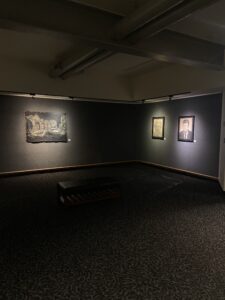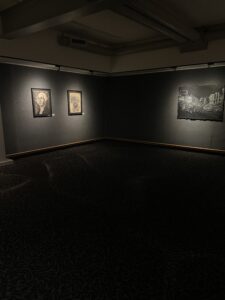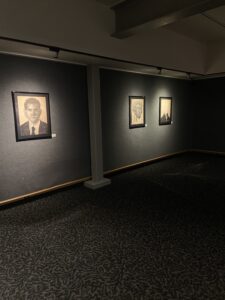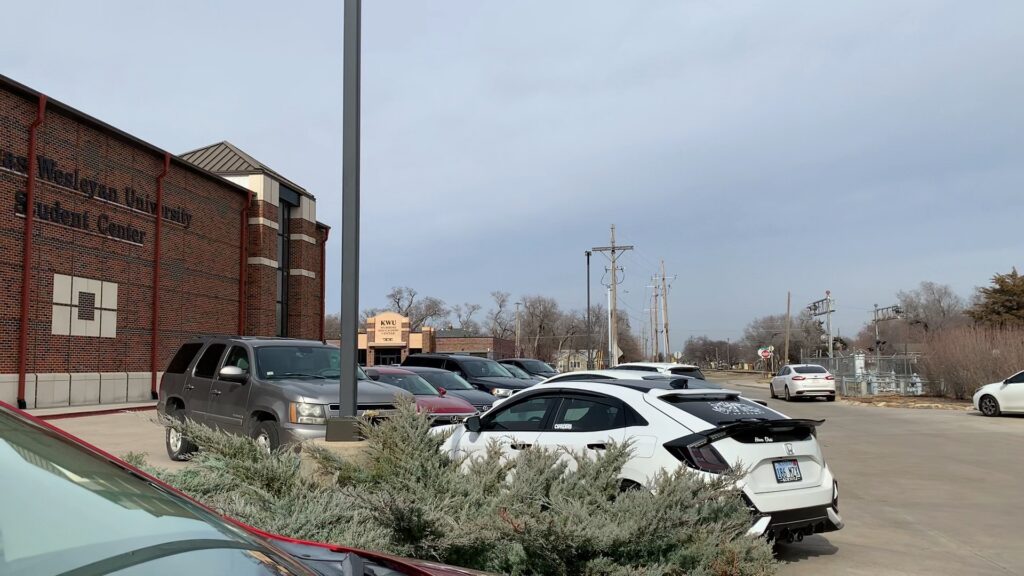Kansas Wesleyan charcoal art gallery
Written by Luke Hager on February 5, 2024
By Luke Hager / Staff Writer
Paintings have been a part of our world culture for decades and ever since we first discovered paintings, we’ve discovered different styles of it. Some do little dots at a time, some two wide/little strokes, some even draw the thing that they want to paint first and then fill it in with color but the one thing that really surprises everyone is the charcoal pieces in the Kansas Wesleyan art gallery in Sam fine arts building. On 9th of January the college was delivered by Darren Morawitz called “If You Can Keep It.” This title was inspired by Benjamin Franklin of what he said in 1787 although by rumors, “A republic, if you can keep it.”
These drawings contain famous political figures and at least two that show ruins of a city supposedly to be rome because franklins statement and the painters fascination with the parallels between the United States and the Roman empire form the foundation of an artistic inquiry.
Emperors of Rome who are often regarded as “good” are typically viewed favorably due to the fact that they were neither assassinated nor did they’re full and in chaos. This perspective as presented by Barry Strasse in his book “Ten Caesars,” provided this scholarly work. Strasse’s insight encourage to a thoughtful reassessment of past presidents, confronting the habit of glorifying them and diminishing the significance of their mistakes overtime. And some ice history should I do as a a candid mirror, revealing the successor and shortcomings of our political figures thereby avoiding a collective forgetfulness that could threaten the integrity of our democratic system
Morawitz’s work as he puts it “questions if society truly understands how countless small historical events can gradually change the democracies into authoritarian regimes.” It sites the gradual collapse of Rome, caused by numerous minor damages as a warning for the present day audience should be encouraged to embark on this reflective exploration with Darren Morawitz, prompting them to consider if we are really aware of the reoccurring transit in history. Morawitz says “can we as a collective have the vision needed to protect to our democracy from the dangers of failing to remember the past ensuring that we can maintain it?”
If you’re interested in the perspective of Morawitz on American society to the fallen Roman empire then it’s available until February 16 for you to set your eyes on it and maybe learn some knowledge of what’s to come.










Pingback: